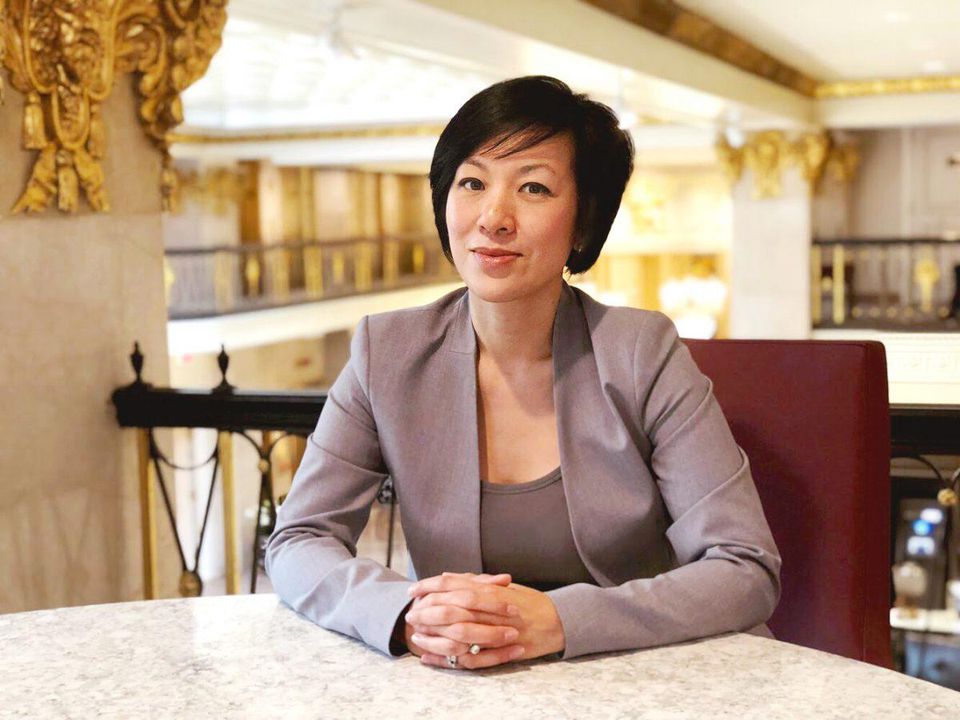How Being A Diplomatic Negotiator Helps This CEO Raise Millions
It is always a strategic decision to be diplomatic in negotiation.
Madalene Mielke is the President and CEO of … the Asian Pacific American Institute for Congressional Studies (APAICS) as well as the Founder and Principal of Arum Group, LLC. Mielke has worked in political and legislative affairs for more than 20 years, and she shares with us her advice on how to being a diplomatic negotiator can not only help keep communities together, it can help you raise millions.
Вернуться на Главную

I met Madalene Xuan-Trang Mielke fifteen years ago, in a dingy training office in Washington, D.C. I remember being in that crowded room, listening with rapt attention to Mielke, as she broke down basic political organizing. I couldn’t tell you what she said because I was fascinated by her shoes — very stylish cream-colored satin kitten heels — in the midst of overwhelming campaign grunginess. The memory of her shoes expresses the hallmark of what I know to be Mielke’s leadership and negotiation style. Mielke always exudes grace. She’s also generous with her time, and has mentored hundreds of people throughout her career. Her elegance is a refinement that she extends to her mentees, as she often helps them call forth leadership into their own lives and careers. I know this because I am one of her mentees.
Mielke was recently appointed as the President and CEO of the Asian Pacific American Institute for Congressional Studies (APAICS), a national non-partisan, non-profit 501(c)(3) organization dedicated to promoting Asian Pacific American participation and representation at all levels of the political process. She founded the Arum Group in 2002, a successful political and non-profit consulting firm, and spent decades working with hundreds of campaigns and organizations across the United States.
Mielke has also raised millions of dollars for all types of campaigns and causes. Over the course of her twenty years in political and legislative work, Mielke has seen the whole spectrum of human behavior, particularly as it comes to bear in negotiations, community organizing and fundraising. She shares her insight on why being diplomatic in approach can not only help you build community, but it can help you hit a bigger bottom line.
Tanya Tarr: What’s the toughest negotiation you’ve ever had to do?
Madalene Mielke: Many years ago, I was hired by a major Presidential campaign to do a million dollar fundraising event within the Asian American and Pacific Islander (AAPI) community. It was a huge multi-party negotiation, and sometimes I felt like I was trying to herd a bunch of people who were acting like drunk cats. We were trying to do something the community had never done before and raise the largest amount of money that this community has ever put together for a major campaign. Here’s the big takeaway I learned: you have to help people feel included. Regardless of how many people are in a negotiation, people want to feel like they all won in the end. At the same time, you have to reach a specific goal. And we did it. We raised a million dollars for that campaign and it was a very big deal because the AAPI community hadn’t shown up like that before.
Tarr: How do you help people feel invested?
Mielke: It really comes down to listening. I joke that fundraisers are a little like therapists because we spend a lot of time listening, often to people venting. Funders want to feel heard. I’ve found that being able to listen to that frustration while still managing to stay as neutral as possible has worked well for me. It’s definitely an art to find ways to show people that their opinion matters while also diplomatically smoothing over disagreements. I can’t ever really take sides.
Tarr: Would you say that’s a hallmark of your leadership, to be very diplomatic?
Mielke: Yes, and it’s challenging, because I do want to create healthy competition when I put together a fundraising committee. But when people start to try and create drama with other people involved (particularly elected officials) it can get very painful because I have to reel everyone back in to a place of harmony. You can’t get caught up in the drama.
Tarr: So being a diplomatic leader has been more successful in increasing your bottom line and hitting your fundraising goals?
Mielke: Yes, it has been for me. My approach to it is to be diplomatic negotiator — you call it a backer — because I want everyone to feel like they’re really heard. When I first started out, I was more like a competitive boxer type, and I tried to always lay down the law and always be right. But I found that this wasn’t authentic to me, and it was much harder for me to take on that personality to get things done. I’m a combination of broker and backer, because I will try to get everyone’s input and bring that into a larger discussion.
Also I want to point out that there can be a difference between being nice and being diplomatic, and I think people confuse that. It is always a strategic decision to be diplomatic in negotiation. It may appear to be nice. Most people who have worked with me will use those two words interchangeably, and they’re really not the same.
Tarr: As you’ve moved through your career, from entrepreneur to the C-Suite, what’s your advice for women wanting to follow that trajectory? What’s the best way for them to take their next step?
Mielke: As you increase your responsibilities, you also have to figure out how to motivate your team or your staff. You have to figure out how to make sure your stakeholders or board members all feel equally invested in the outcome you’re trying to create. It’s not just the negotiation of salaries or benefits, but it’s also about learning how to negotiate while being emotionally aware. It’s about looking at the cues people are giving you and figuring out what is going to push them to fulfill their commitment or meet whatever obligation they committed to doing.
I think it’s helpful to think of negotiation as a constant conversation. Sometimes people are a little fearful of negotiation because it requires that someone is going to give them feedback. That might be tough feedback, or a person might be asked questions they don’t have answers to. But even with negative feedback, that’s actually an opportunity to ask more questions. We can ask, ok, how do we fix this? What’s the cause of this? How can we change this together? That’s part of the probing that you have to do to get to someone’s real bottom line and their true feelings about a situation. That’s what I really think about when I think about negotiation. You have to continuously get feedback to be able to find a common place and get to the end goal.
As you move into bigger positions and work with more senior people, every negotiation will still be a similar type of conversation. You can’t be afraid to have it. And you have to be able to admit when things are going wrong and still help processes move forward.
Tarr: What negotiating advice would you give your younger self?
Mielke: I would tell myself to be brave in being myself. I’ve mentored so many people through the years, and I think when we’re young, there’s this idea that you need to overcompensate for being young. You might feel like you don’t have enough experience or ability to be your true personality. And I think I got caught up in that, too, in trying to appear tough or appear more rigid or aggressive than I really am.
I went to school in the South and I admired the women of the South who had strong personalities and were unafraid to show the soft skills, like Congresswoman and diplomat Lindy Boggs. These women were gracious and showed emotion and were still able to get big things accomplished.
When I was younger, I viewed myself as someone who didn’t need soft skills to be successful, that I didn’t have to bother with being very diplomatic. I was direct and a straight-shooter. I worked with Congresswomen of an older generation, who didn’t always express those softer skills, either. So many of them came up at a time where they felt they couldn’t show emotion or conform to other people’s definition of what being feminine might mean. I think they felt they had to be that way — rigid and unemotional — to be successful in a very male dominated industry. Their public persona required that they give themselves a sort of mask to shield themselves from the negativity that would come their way. They could never appear to be vulnerable or flexible.
It’s really interesting, because the women that came after them, the next generation, carry themselves very differently. They are a little more approachable, and there is an openness to being publicly vulnerable and to express emotion, and to see that as strength.
Tarr: What’s your negotiation advice for women of color?
Mielke: I think women of color have had to …



































